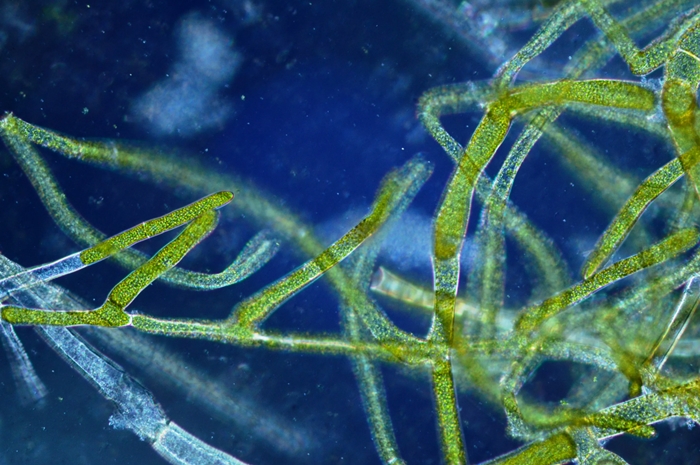Turkmen scientists are pioneering the use of microalgae for a two-pronged purpose: generating clean, renewable energy and purifying sewage and drainage water. This research aligns with the goals outlined in the State Program for the Integrated Development of Biotechnologies in Turkmenistan (2024-2028). Additionally, despite rich oil and gas reserves, Turkmenistan recognizes the increasing importance of renewable energy sources for the country’s future energy mix.
Kakageldy Saryev, Candidate of Technical Sciences and Director of the Renewable Energy Research and Production Center at the State Energy Institute of Turkmenistan, wrote about recent researches in hist article, published by the “Neutral Turkmenistan” newspaper.
Here is an abridged version of the article:
Sustainable development today requires a balance between economic prosperity, social well-being, environmental protection, and now, a crucial fourth pillar: energy security. To address challenges that could hinder this progress, Turkmenistan has implemented a comprehensive anti-crisis energy policy across various sectors, ensuring a stable GDP.
The promise of biotechnologies extends beyond economic benefits. They offer significant environmental advantages by reducing pollution. Biotech-based technologies are being developed to clean up existing pollution and mitigate human impact on the environment.
In agriculture, biotechnologies hold the potential to improve water and food security. Initial research focuses on harnessing the energy potential of microalgae biomass for bioenergy production.
Cultivating microalgae using collector and drainage waters offers a promising solution for Turkmenistan’s development. This approach tackles two crucial challenges simultaneously: generating renewable bioenergy and purifying wastewater for reuse. Microalgae biomass emerges as a sustainable and environmentally friendly source for biofuels, with minimal environmental impact.
Furthermore, this method fosters a holistic approach, contributing to food security, alleviating water scarcity, and improving the environment by utilizing pollutants present in drainage waters.
Fortunately, Turkmenistan has a warm arid climate with extensive sunshine, high temperatures, and minimal frost. This translates to 5-6 months ideally suited for microalgae cultivation, with favorable light conditions persisting for most of the year (9-10 months).
In an arid climate like Turkmenistan’s, a significant amount of collector and drainage water forms in irrigated fields, but its current usage is limited. While extensive research has explored purification methods, including biological solutions, the focus has been on secondary use for salt-tolerant crops.
This is where microalgae offer a game-changer. A long-term laboratory experiment by the State Energy Institute’s Renewable Energy Center revealed a fascinating finding. During growth and reproduction, microalgae produce charged ionic metabolites that alter the electrochemical properties of collector water. This paves the way for harvesting natural, renewable energy from a previously underutilized resource.
The benefits extend beyond energy production. Experiments also confirmed the ability of microalgae to utilize pollutants present in these drainage waters. This approach not only generates clean energy but also helps clean polluted water, a significant advantage in arid regions.
The purification of collector and drainage waters using microalgae holds immense potential for Turkmenistan’s most crucial sector: agriculture. Cleaner water means improved agricultural production and forage cultivation. This, in turn, strengthens the foundation for maintaining stable livestock populations, land use practices, and overall water management.
This environmental improvement fosters the protection of nature, safeguards the genetic resources of agrobiodiversity, and contributes to the sustainable development of the national economic structure.
In essence, microalgae cultivation transcends a mere economic activity. It acts as a positive force for the environment and human health. After all, a healthy environment underpins the economic well-being of both the state and its society. ///nCa, 17 July 2024
